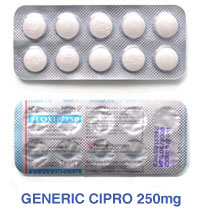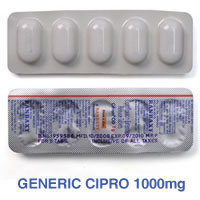
Pharmacy
Quantity
Unit Price
Total Cost
Payment methods
$1.83
$55
$1.23
$74
$0.44
$39.64
$1.04
$94
$0.37
$44.22
$0.87
$104
$0.30
$53.38
$0.72
$129
$0.22
$80.86
$0.55
$199
$2.17
$65
$0.71
$42.75
$1.40
$84
$0.54
$48.99
$1.16
$104
$0.46
$55.23
$0.95
$114
$0.38
$67.72
$0.82
$148
$0.32
$86.44
$0.69
$186
$0.29
$105.17
$0.64
$229
$1.98
$59.40
$2.50
$75
$1.39
$83.16
$1.57
$94
$1.19
$106.92
$1.27
$114
$0.99
$119
$1.09
$130.68
$0.87
$156
$0.99
$178.20
$0.76
$274
$0.89
$320.76
$2.33
$69.75
$5.80
$174
$1.63
$97.65
$3.78
$227
$1.40
$125.55
$2.99
$269
$1.28
$153.45
$2.62
$314
$1.16
$209.25
$2.27
$409
$1.05
$376.65
$1.94
$700
Description
Ciprofloxacin tablets are used to treat lung infections including pneumonia and bronchitis as well as a number of other bacterial infections such as urinary tract, sinus, and sexually transmitted diseases.
In mycoplasma pneumonia, Cipro appears to relieve most of the infection-related symptoms.
It is generally used for 10 to 14 days and may cause side effects such as upset stomach, vomiting, stomach pain, indigestion, headache, nervousness, and agitation, among others.
Original uses (on-label)
Used to treat gonorrhea, susceptible bacterial infections, such as bone and joint infections, bacterial diarrhea, various bacterial infections in the lung, eye, sinuses, skin, and skin structure.
Newly discovered uses (off-label)
Also, patients can order ciprofloxacin online to treat cholera, Crohn's disease, diverticulitis, gingivitis, granuloma inguinale, Legionnaire's disease, mycoplasma pneumonia, nonbacterial prostatitis, periodontitis, prevention of meningococcal meningitis.
Potential side effects
Dizziness, nausea, diarrhea, various blood disorders such as anemia, tremors, confusion, depression, nervousness, agitation, anxiety.
Cautions
Before you order ciprofloxacin, please check the following information.
- Tendon rupture involving the hands, shoulders, and Achilles tendon have occurred with the administration of a quinolone, and it may happen during or after therapy. If you experience any pain, inflammation, or rupture of a tendon, discontinue therapy and call your physician. Avoid exercising and get plenty of rest until the diagnosis of tendinitis or tendon rupture has been positively excluded.
- Stop the medication at the first sign of a rash.
- Prolonged use may cause superinfection.
- This drug is not indicated in persons under the age of 18.
- May aggravate symptoms of myasthenia gravis.
- Patients who buy ciprofloxacin online need to understand that cipro does not kill anaerobic bacteria (bacteria that does not need oxygen).
- Inform your doctor if serious, persistent diarrhea develops.
Drug interactions
Antacids, didanosine, iron salts, corticosteroids (increase risk of tendon rupture), sucralfate, calcium, zinc salts, warfarin, antineoplastic agents, azlocillin, caffeine, cimetidine, cyclosporine, probenecid, sulfonylurea glyburide, theophylline.
Food interactions
Dairy products or calcium-fortified juices. Serum caffeine levels may be increased.
Herbal interactions
Dong quai, St. John's wort
Pregnancy and breast-feeding cautions
FDA Pregnancy Risk Category C. May be excreted in breast milk. Do not use during breast-feeding.
Special information
- Before you buy cipro, you should know that extended release tablets cannot be crushed, split, or chewed. Take entire prescription even if feeling better.
- Maintain adequate hydration (2 to 3 L/day of fluids) to avoid concentrated urine and crystal formation.
Where can I buy Ciprofloxacin without prescription?
Generic Cipro is a prescription drug that comes in 250 mg, 500 mg, 750 mg, 1000 mg tablets. It is available on prescription only as tablets for oral use, but the online pharmacy, will sell Ciprofloxacin without prescription. You may be able to order Cipro from them online and save the local pharmacy markup.
Cipro and Mycoplasma Pneumonia
A researcher from Denmark reviewed a number of studies to summarize the efficacy of ciprofloxacin in respiratory infections.
In these studies, Cipro was dosed from seven to 16 days, and in up to 103 patients with a variety of lung infections.
Additionally, based on the findings from a number of experiments with animals infected with Mycoplasma pneumoniae, this researcher suggested that this drug has a role in the treatment of human mycoplasma pneumonia.
Researchers in Japan compared the efficacy of ciprofloxacin tablets with other quinolone-type antibiotics, temafloxacin and ofloxacin, in mycoplasma pneumoniae-infected hamsters. In this study, both temafloxacin and ofloxacin, but not Cipro were active when the oral formulations given once daily for five days were started 24 hours after infection. Additionally, continuous administration of it or ofloxacin for 15 days did not significantly reduce the amount of Mycoplasma pneumoniae in the lungs. Use of this drug must be considered in conjunction with a physician.
Researchers in Japan compared the efficacy of ciprofloxacin tablets with other quinolone-type antibiotics, temafloxacin and ofloxacin, in mycoplasma pneumoniae-infected hamsters. In this study, both temafloxacin and ofloxacin, but not Cipro were active when the oral formulations given once daily for five days were started 24 hours after infection. Additionally, continuous administration of it or ofloxacin for 15 days did not significantly reduce the amount of Mycoplasma pneumoniae in the lungs. Use of this drug must be considered in conjunction with a physician.
Cipro for the treatment of diverticulitis
Because diverticular disease often involves infection with multiple organisms in the intestines, physicians suggest treatment with medicines that are able to kill a wide range of pathogens, according to an article on eMedicine from the University of California at Irvine Medical Center. You can order cipro, because some drugs, for example, kill anaerobes (such as bacterids), while others kill gram-negative organisms (such as enterococci), multiple drugs are needed. Therefore, as the investigators discuss, complicated diverticulitis is commonly treated with a combination of metronidazole or clindamycin with an aminoglycoside such as gentamicin or a third-generation cephalosporin such as cephalosporin.
Milder cases are treated on an outpatient bases with a regimen that includes ciprofloxacin and metronidazole. Recently, rifampin has been used to treat milder cases of acute diverticulitis, either alone or in combination with other antibiotics.
In a case review on acute diverticulitis in the New England Journal of Medicine, the researchers urged the use of broad-spectrum antibiotic coverage. They referred to the use of ampicillin, gentamicin, and metronidazole as the "standard triple therapy."
Milder cases are treated on an outpatient bases with a regimen that includes ciprofloxacin and metronidazole. Recently, rifampin has been used to treat milder cases of acute diverticulitis, either alone or in combination with other antibiotics.
In a case review on acute diverticulitis in the New England Journal of Medicine, the researchers urged the use of broad-spectrum antibiotic coverage. They referred to the use of ampicillin, gentamicin, and metronidazole as the "standard triple therapy."
What is Ciprofloxacin?
This drug is used to treat infections. It works by interfering with cellular enzymes, stopping the activity of DNA.
Brands & Classes
Brand name
Cipro, Cifran, Cipract, Floxip
Generic name
Ciprofloxacin
Chemical class
Fluoroquinolone derivative
Therapeutic class
Antibiotic (quinolone)
Cipro, Cifran, Cipract, Floxip
Generic name
Ciprofloxacin
Chemical class
Fluoroquinolone derivative
Therapeutic class
Antibiotic (quinolone)
Avail forms
Tablets - Oral 250 mg, 500 mg, 750 mg, 1000 mg.


Dosage
Adult
Uncomplicated UTI: PO 100-250 mg q12h.
Complicated / severe urinary tract infections: PO 500 mg q12h x 14 days.
Respiratory, skin, bone, and joint infections: (Bone and joint infections may require treatment for 4 to 6 wk or longer) PO 500-750 mg q12h x 7-14 days.
Infectious diarrhea: 500 mg q12h x 5-7 days.
Uncomplicated gonorrhea: PO 500 mg as a single dose, plus doxycycline 100 mg bid or other agent active against chlamydia.
Typhoid fever: PO 500 mg q12h.
Ocular: 1 gtt 5-6 times/day.
Renal impairment: CrCl 10-50 ml/min 50% of dose; CrCl <10 ml/min 30% of dose.
Uncomplicated UTI: PO 100-250 mg q12h.
Complicated / severe urinary tract infections: PO 500 mg q12h x 14 days.
Respiratory, skin, bone, and joint infections: (Bone and joint infections may require treatment for 4 to 6 wk or longer) PO 500-750 mg q12h x 7-14 days.
Infectious diarrhea: 500 mg q12h x 5-7 days.
Uncomplicated gonorrhea: PO 500 mg as a single dose, plus doxycycline 100 mg bid or other agent active against chlamydia.
Typhoid fever: PO 500 mg q12h.
Ocular: 1 gtt 5-6 times/day.
Renal impairment: CrCl 10-50 ml/min 50% of dose; CrCl <10 ml/min 30% of dose.